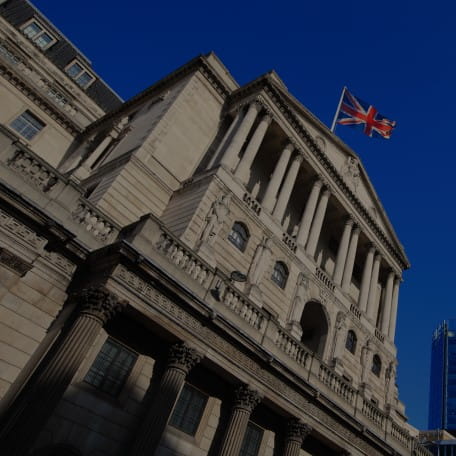Last week, the British Retail Consortium reported 15% annual food inflation in March, the highest since it began recording the measure in 2005. Following hot on the heels of an unexpected jump in UK consumer price inflation to 10.4% in February (from 10.1% in January), it seems last year’s price-level preoccupation may be an ongoing concern.
The type of inflation we are mostly familiar with arises during periods of strong economic growth, with growing demand pulling up prices for a limited short-term stock of goods and services. In economics text books, this is referred to as demand-pull inflation.
Less frequently, we see inflation stemming from a supply-side shock, where higher costs of production push prices higher. This scenario is more economically damaging in many respects, not least because it is associated with lower overall economic output, rather than the higher activity which causes demand-pull inflation. This more painful inflation is often labelled cost-push.
As noted by Aitken Ross of the Sustainable Investment team, the type of inflation buffeting economies is a vital distinction as it directly affects the efficiency of monetary and fiscal policy:
“The nature of inflation is important to understand; we are seeing ‘cost-push’ inflation which has come from a shock to supply chains, not the more typical ‘demand-pull’ variety of inflation that you might see in a strongly growing economy. Trying to control inflation by suppressing demand (via rate rises) will therefore have limited results. We would view any further hikes as likely to be economically damaging but have little impact in reining in inflation.”
In the immediate emergence from Covid-19 lockdown measures, there was a surge in global demand for goods and services which exceeded the productive capacity of industries and supply-chains which had been moth-balled for many months. This initial bout of post-lockdown inflation could be characterised as a combination of a surge in demand (demand-pull) and a supply shock (cost-push, as global supply chains stuttered back to life).
Over the last year or so, the supply side of the equation has taken over, with Russia’s invasion of Ukraine exacerbating supply chain problems and creating shortages in key goods emanating from the region, such as gas and fertiliser to name only a couple.
More recently, poor harvests in European and North Africa have combined with the trade frictions created by Brexit to cause a spike in food inflation in the UK. Anyone wanting to rustle up a bolognese in February may have had to skimp on the sauce as a tomato shortage left supermarket shelves looking bare.
As the 2021 narrative of ‘transitory’ inflation gave way to 2022’s acceptance that cost increases were persistent and self-reinforcing, the ability of companies to pass through price increases and protect profits became a key talking point.
This pricing power is a core part of the Economic Advantage team’s investment approach, which they view as analogous to barriers to competition, as explained by Anthony Cross:
“A key tenet of our investment process is the importance of barriers to competition. We have moulded our approach around the identification of characteristics which we believe allow companies to sustain profits in the face of competitive threats. It is this theoretical ability to generate a higher than average level of profitability for longer than expected which we refer to as Economic Advantage.”
“Another way of thinking about barriers to competition is in the form of pricing power: the ability to maintain prices and profit margins in a crowded and competitive marketplace. In simple terms, a company can maintain prices and protect profit margins in the face of competition or cost inflation. In more jargonistic terms, we would say that the company’s demand is relatively price inelastic.”
Some of the world’s biggest companies have very successfully raised prices over the past year or two. So successfully in fact that some have begun to suggest a third form of inflation is now at play: profit-led inflation, or ‘greedflation’.
The good news for consumers is that there is strong consensus that inflation will ease this year, with interest rates following suit in due course. Phillip Milburn of the Global Fixed Income team comments:
“Some food price inflation should reverse with the much-publicised tomato and salad shortage in the UK mainly a temporary phenomenon. The annual impact of energy price inflation will also reduce soon due to the base effect of the Ofgem cap jump in April of last year; wholesale forward prices suggest that energy inflation may well turn negative later in the year.
Although wage inflation is off its top, an imminent increase in unemployment is no longer anticipated by the Bank of England, so the UK labour market will remain tight, and services inflation may therefore take some time to ease back.
The Bank of England has left the door open for more rate hikes, but economist forecasts – cognisant of financial stability considerations brought about by Silicon Valley Bank’s collapse – currently include just one more 25 basis point hike to 4.5%, coming in May or June, at which point ‘peak rates’ in the UK will have been reached.“KEY RISKS
Past performance is not a guide to future performance. The value of an investment and the income generated from it can fall as well as rise and is not guaranteed. You may get back less than you originally invested.
The issue of units/shares in Liontrust Funds may be subject to an initial charge, which will have an impact on the realisable value of the investment, particularly in the short term. Investments should always be considered as long term.
DISCLAIMER
This is a marketing communication. Before making an investment, you should read the relevant Prospectus and the Key Investor Information Document (KIID), which provide full product details including investment charges and risks. These documents can be obtained, free of charge, from www.liontrust.co.uk or direct from Liontrust. Always research your own investments. If you are not a professional investor please consult a regulated financial adviser regarding the suitability of such an investment for you and your personal circumstances.
This should not be construed as advice for investment in any product or security mentioned, an offer to buy or sell units/shares of Funds mentioned, or a solicitation to purchase securities in any company or investment product. Examples of stocks are provided for general information only to demonstrate our investment philosophy. The investment being promoted is for units in a fund, not directly in the underlying assets. It contains information and analysis that is believed to be accurate at the time of publication, but is subject to change without notice. Whilst care has been taken in compiling the content of this document, no representation or warranty, express or implied, is made by Liontrust as to its accuracy or completeness, including for external sources (which may have been used) which have not been verified. It should not be copied, forwarded, reproduced, divulged or otherwise distributed in any form whether by way of fax, email, oral or otherwise, in whole or in part without the express and prior written consent of Liontrust.










